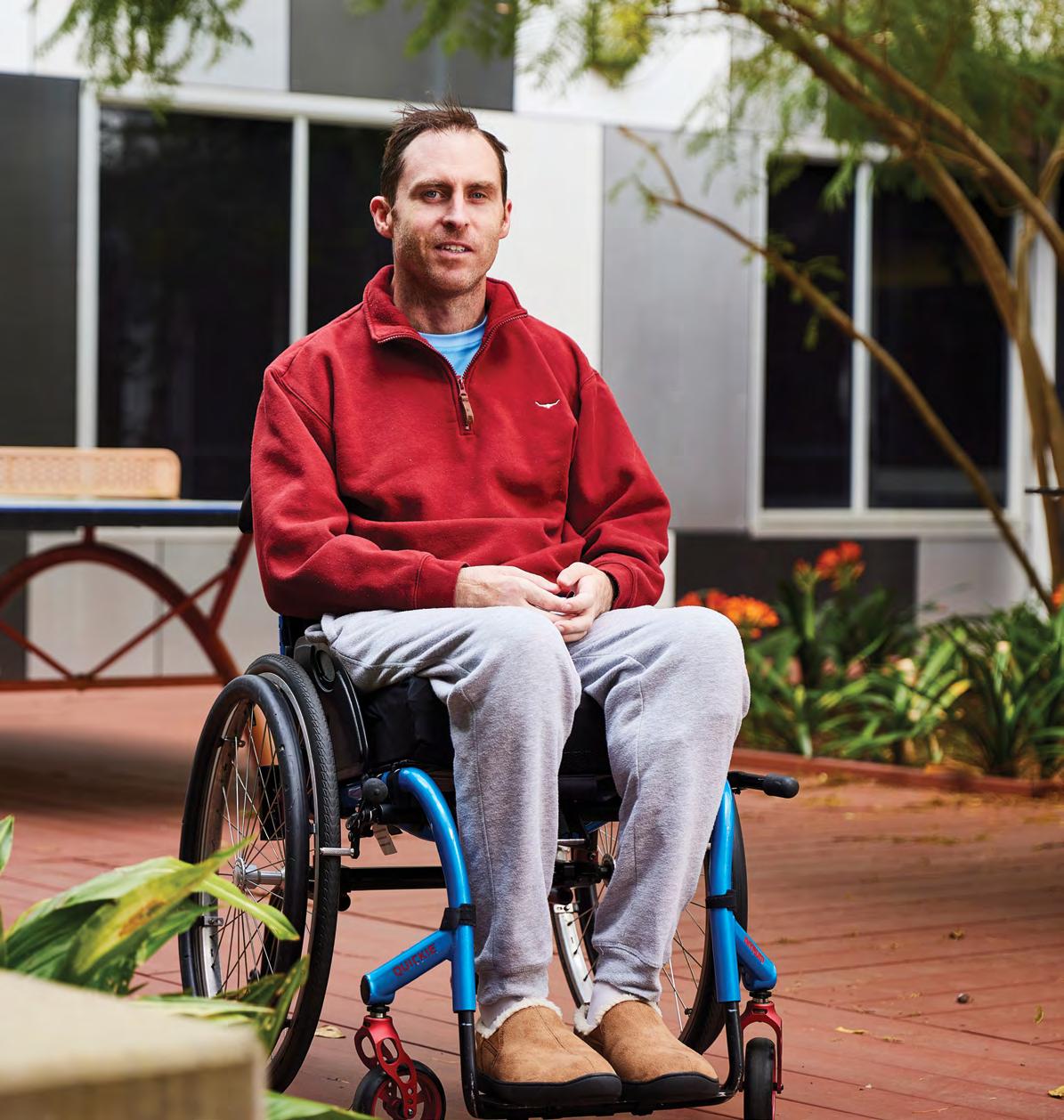
4 minute read
In-Voc
In-Voc is a specialist vocational rehabilitation service dedicated to supporting people with spinal cord injury to explore work, study and volunteering options by providing assistance with career exploration and planning, skill and knowledge development, returning to work supports, assistive technology and job-seeking skills.
Andrew’s story
Advertisement
36-year-old Andrew Regan was playing rugby when a tackling accident left him with significant damage to his spinal cord, resulting in quadriplegia.
As a result of his injury, Andrew spent 100 days at Royal North Shore Hospital (RNS), where at week 10 he started to think about how he could return to work. Andrew says that he felt that the sooner he could get back to work and ‘feel like he was contributing to society, the better.’ Prior to his accident, Andrew had been working as an agricultural researcher with the CSIRO. Outside of work he was also undertaking a PhD in agricultural research: exploring ways to increase carbon in the soil to improve productivity for farmers and reduce greenhouse gas emissions.
Upon hearing Andrew’s goal to return to work, RNS staff connected him with Rachel Harper, In-Voc’s Senior Vocational Consultant and Occupational Therapist. Visiting Andrew at hospital, Rachel worked with him to understand the tasks he performed in his role at the CSIRO to identify what he could continue doing and the barriers he would need to overcome to get back to work. Andrew found Rachel’s fortnightly visits to RNS extremely beneficial. “Coming across to meet me at RNS at a point in time when I needed help to start thinking about how I might return to work, was very helpful. It helped me start sooner rather than later,” he says. To help Andrew overcome on-the-job-related structural barriers, Rachel and Andrew trialled different assistive technologies, including software that translates spoken words into text, and mouse options including breath activated options. “Between our first meeting and where I am now, my hand and wrist movement has improved to the point where we are now considering leaving some of those earlier proposed technologies behind,” Andrew says. “It was very encouraging to see that there were good and usable options way back then – and now I am lucky enough to have had more movement return, there are other options that might suit me better. It’s great to know that there are so many options out there.”
Rachel also worked with Andrew and his employer to apply for a grant to fund the voice assisted software that will enable him to undertake many of his duties when he returns to work. “I am very lucky that my employer wants to support me through my recovery,” says Andrew. “Rachel managed the entire process of liaising with my employer and helping me to fill in and submit the forms. Funding came through within a few days and the entire process of filling in the form, getting it approved and downloading the software onto my computer only took a week in total. It was an amazing achievement.” Rachel is helping Andrew to navigate the new software and the mouse options on offer. His goal is to recommence his PhD and potentially start working one day a week for the CSIRO later in the year. Now in rehab, Andrew is strengthening his arm and hand functions as well as improving his overall balance and strength. His medium-term goal is to spend Christmas at home with his wife and 18 month old son Angus - and to start full-time work in the new year. When asked about his experience with In-Voc, Andrew says, “They are so approachable and happy to help. That mental health component - knowing that there is a future outside of hospital and that it is achievable to work again is so important. “As soon as you know that there is that light at the end of the tunnel, it’s then just a case of working towards that.”
- Andrew Regan.










